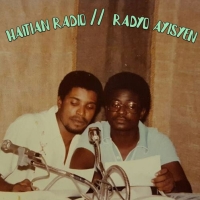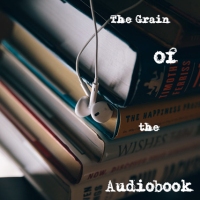Classical Singing: Cradle for Sorrow and Healing
J. Stoever-Ackerman’s recent exploration of the complicated relationship between classical music and social class in America raised some provocative questions for me personally. I am a professional classical musician with a doctorate in voice, as well as the daughter of two working-class white ethnics who became professional intellectuals. My family’s origins, curiously perhaps by today’s standards, did not place classical music out of reach on the far side of the class barrier: my father played in the legendary Hempstead High School Orchestra on Long Island, while my mother, a single teen mom, took herself to the Philharmonic for a Christmas gift every year while she worked in a factory and attended college at night (this was, however, before music instruction was gutted from the public school curriculum in the 1970s and 1980s). As a result, classical music was a very present part of my early life, and, without overstating things too much, I can realistically say that it has helped to form me as a person, and has provided me not only with bread for my body but also, and more importantly, with breath for my soul. I feel like the study and practice of classical music gave me not only my career, but even my life. Coming from this position, then, Stoever-Ackerman’s slighty gulity bemusement at her pleasure in the orchestral concert she attended, and her assertion that “where listening is concerned, resistance and subjection can never be easily separated,” sat uneasily with me.
Stoever-Ackerman’s objections to longhair music are based not only upon class affinity, but also, perhaps unconsciously, in her standpoint as a twenty-first-century American intellectual. As UCLA musicologist Richard Taruskin has noted, it has been au courant since the 1960s for intellectuals to eschew classical music in favor of the various genres of what he calls “commercial music:”
and they often seem oblivious to the very existence of other genres. Of no other art medium is this true. Intellectuals in America distinguish between commercial and “literary” fiction, between commercial and “fine” art, between mass-market and “art” cinema. But the distinction in music is no longer drawn, except by professionals. Nowadays most educated persons maintain a lifelong fealty to the popular groups they embraced as adolescents, and generation gaps between parents and children now manifest themselves musically in contests between rock styles.
If, as has already been discussed extensively at this site, pop and its various genres make up the (only?) legitimate musical repertoires of the American working classes–both white and of color–I believe it’s time for a word from the trenches of musical praxis: this is not necessarily so, nor should it be.
While earning my doctorate at the City University of New York, I taught for two years as a graduate assistant and for another two as an adjunct at two of CUNY’s senior, i.e. four-year, colleges. In the heart of an urban metropolis, I taught studio and class voice, that is to say both individual lessons and singing classes en masse. My students, with very few exceptions, were from the outer-borough working classes, traveling long distances on public transportation to attend college while working and in some cases parenting, and they represented a variety of races and ethnicities, with whites solidly in the minority. Most of my private-lesson students were older than I was, returning students who had been sidetracked by life and various dead-end jobs from finishing their bachelor’s degrees at a more usual age. Since I am a classical singer, I taught everyone the same thing: classical singing. My voice students studied classical musical practice and classical music repertoire not only because I believe that healthy classical technique is the basis of good vocal technique across genres — that is, if you can sing well in the classical style, you can sing anything well — but also because I know, in the depths of my being, that the experience of making classical music is healing and transformative for the person who undertakes it, an experience that should be denied to or refused by no one. In this sense, classical music praxis was, in my studio, a tool for self-transformation, self-empowerment, and self-expression that ignored distinctions of class and race. This might suggest that classical music is in fact a subversive practice for the working classes and people of color, and perhaps it is, though I see it more as a human right.
In teaching these diverse classes, I tried very hard to discern what sort of a person each of my students was, and to choose the right repertoire for each based not only on vocal characteristics but also on everything the student presented to me: his or her ethos, if you will. The truth is that I loved and respected my students, and I felt a heavy responsibility for making their experience as fledgling classical musicians one that would enrich their lives. They were, as I mentioned, from wildly divergent backgrounds. One was the daughter of a famous Puerto Rican bandleader who had discouraged her from a career in music, her true love; she made a living selling gloves and hats from a table outside the Metropolitan Museum of Art. One was a Haitian Seventh-Day Adventist, a highly intelligent, spinsterish woman who spoke German as well as French, and whose singing revealed hints of a magnificent natural instrument — if only she had been physically and psychically free to the point that she could have accessed it. Another was T., a shy, socially-awkward man in early middle age who worked as a paralegal, and who confided after three lessons that he was a recovering alcoholic. Many of my students, I perceived, were profoundly wounded and  heartbroken people. Though occasionally they spoke of their traumas and difficulties, words were not really necessary; the dynamic of the private voice lesson is so transparently revealing, and the rough areas in the voice provide such an accurate mirror of the catches in the soul, that I didn’t need to look hard to grasp their woundedness, if not always the nature of their wounds. This is why, as every classical singer and voice teacher know, tears are a commonplace in the voice studio. And this is why it is so essential that a voice teacher be compassionate. The voice — that intangible, ethereal instrument played by the passage of air over two threads of gristle in the throat — can be not only a diagnostic gauge of the inner singer, but also, ideally, a means of healing for both the singer and her audience.
heartbroken people. Though occasionally they spoke of their traumas and difficulties, words were not really necessary; the dynamic of the private voice lesson is so transparently revealing, and the rough areas in the voice provide such an accurate mirror of the catches in the soul, that I didn’t need to look hard to grasp their woundedness, if not always the nature of their wounds. This is why, as every classical singer and voice teacher know, tears are a commonplace in the voice studio. And this is why it is so essential that a voice teacher be compassionate. The voice — that intangible, ethereal instrument played by the passage of air over two threads of gristle in the throat — can be not only a diagnostic gauge of the inner singer, but also, ideally, a means of healing for both the singer and her audience.
T. surprised me in our first lesson by bringing in a song he was working on on his own. Occasionally students did this, the song generally being from the Broadway repertoire. T.’s choice, however, was Robert Schumann’s “Schöne Wiege meiner Leiden.” This piece is number 5 of the Op. 24 Liederkreis, a song cycle based on poems from the Buch der Lieder of Heinrich Heine, the greatest poet of German Romanticism (and also a notable Jewish convert to Christianity, who famously declared on his deathbed in Paris: “I know that God will forgive me my sins: c’est son métier“). This was an ambitious choice. I usually started my students on one or more of the shopworn Twenty-Four Italian Songs and Arias from the Seventeenth and Eighteenth Centuries. But T.’s German was excellent, and he even directed me in how he wanted me to accompany him in the piano part; he had rather well-formed ideas and opinions about how the piece should sound, one of the hallmarks of a true musician.
“Schöne Wiege” starts off as a gently-rocking lullaby-like song (what we in the biz call a “strophic berceuse”), then turns quickly into a rhapsodic, though brief, through-composed quasi-operatic number (a “scena”), with the off-kilter rhythmic phrases and the melodic angularity typical of Schumann. Its subject, and the subject of the song cycle in which it is the pivot, is that great theme of German Romanticism: unhappy love that forces the wounded lover on a journey which, in some treatments, ends in death or madness. My translation follows:
Beautiful cradle of all my sorrows, beautiful tomb of my repose,
Beautiful city, we must part: “Farewell,” I call to you.Farewell, you holy threshhold where my beloved wanders;
Farewell, sacred spot where I first saw her.And had I never seen you, beautiful queen of my heart,
The wretchedness I now endure would never have befallen me.I did not wish to touch your heart; I did not seek your love —
I wished only to live a quiet life near the place where your breath flutters.But you yourself drive me from here; your mouth speaks bitter words.
Madness takes hold of my mind, and my heart is sick and sore.And I drag my weary, weakened limbs away, leaning on my wanderer’s staff,
Until the time I might lay by tired head in some cool, far-off grave.
I was astonished by T.’s innate feeling for this difficult piece, and we quickly came to the point where I felt like I was serving him badly by accompanying him on the piano myself. I hired a student accompanist, an excellent pianist from Sweden, to come to our lessons, paying her out of pocket. Once out from behind the piano, I could work with T. more intensely on his breath and his phrasing. This ushered in one of the most thrilling times I’ve ever had as a teacher. Working on “Schöne Wiege” in the studio with T. and the accompanist, I felt as if we were riding a cresting wave together as three musicians. T. achieved moments in which there was a synergy between his vocal line and the equally important piano part, and when not only the melody and the meaning of the text, but even the sounds of the words themselves created multiple layers of meaning in his performance. Especially stunning was the way that he was able to sing each repetition of “Lebewohl!” (farewell!) differently, drawing one out with rubato, clipping another. I would leave these lessons feeling elated, as if I had finally found what I was meant to do with my life.
T. wanted to audition for the B.M. degree at CUNY, a more prestigious program than the B.A. he was pursuing, so we started working on an audition program. I gave him an Italian piece, a piece by French late-Romantic composer Gabriel Fauré, the aching tenor showpiece “Lonely House” from Kurt Weill’s 1947 American opera Street Scene (often performed by university music departments because of its plethora of ensemble roles), for which Langston Hughes wrote the libretto:
And, finally, “Der Lindenbaum,” the best-known piece from Franz Schubert’s great song-cycle Winterreise. “Der Lindenbaum” (The Linden Tree) also treats the theme of being made to leave home forever, driven on by the unforgettable pain of love gone wrong, and it has become a kind of folk-song in the German-speaking lands:
In one stanza of “Der Lindenbaum,” the narrator describes how, in the course of his journey, the cold wind has blown his hat away, and yet he does not stop. T. mentioned something that I hadn’t considered: that in Europe in the 1820s, a man outdoors without his hat would have been committing an unthinkable social transgression; the fact that the narrator doesn’t turn back for his hat, T. suggested, showed the desperation of his plight, and was a clear foreshadowing of the madness into which he almost willfully descends at the end of the song cycle. I realized that T. was the kind of student I had dreamed of teaching, one who gave serious thought to the meaning of the text and the music, and to the reasons composers might have had for writing as they did.
When the time for T.’s audition came around in the spring, he clutched. I had instructed him to start the audition–at which I was not allowed to be present–with one of his best pieces, the Weill or the Schubert, but he second-guessed the audition committee and decided that they would probably want to hear the Italian piece first. A mistake. He wasn’t admitted, and the following year switched his major from voice to music composition.
Near the end of the school year, I organized a recital for my students. T. was to sing “Lonely House” and “Lindenbaum.” He rushed in just as the recital was starting with an etiolated, sickly-looking man whom I realized was his boyfriend in tow. He told me at the intermission that he almost hadn’t come. His beloved cat was near death, and he was beside himself. He got through his pieces, though he didn’t shine.
This made me think about all the dreadful times in my life when I had kept on singing. There was simply nothing else to do; many times singing had seemed the only thing left to me. In our next lesson, one of our last, I mentioned obliquely some of these occasions in my own life, which included abortion and divorce. An artist, I explained, has to be cool-headed even in the face of great personal suffering. C’est son métier. It’s her job to sublimate her suffering into a balm that might touch those who hear her, and give them the healing that she seeks for herself. Arising out of our nonetheless-shared western cultural heritage, classical music is a gift to us twenty-first century Americans across race and class, and, in some small way, those who practice it can use this gift — the gift of beauty — to transform our own suffering, as well as the suffering of others.
I never saw T. again after that, except once by chance, as I was heading to a pub in Midtown to meet my boyfriend. He still had a CD I lent him, the wonderful Tryout, which features recordings of Kurt Weill singing and playing his own songs in rehearsal for the Broadway shows he wrote.
For a final treat, here’s an excerpt from that CD, Kurt Weill singing a snatch of his famous song “Speak Low” from the 1947 musical “One Touch of Venus,” for which American poet Ogden Nash wrote the lyrics. In Weill’s performance, the great tradition of the German art song — the tradition of “Schöne Wiege meiner Leiden” and “Der Lindenbaum” — meets the race-and-class-fraught American popular music scene; the song became a beloved standard, and was sung by the great jazz triumvirate of Billie Holiday, Ella Fitzgerald, and Sarah Vaughan, among others. Here, Weill’s fragile-sounding vocal delivery and heavy German accent embody the world-weary European composer (Weill was a refugee) delivering himself into the capable and vital hands of a musical culture built by immigrants and former slaves.
4 responses to “Classical Singing: Cradle for Sorrow and Healing”
Trackbacks / Pingbacks
- - March 21, 2011































Thank you for this. I am not a professional in music at all, so I hope you indulge me to ask questions which may seem naïve, or off-point.
I found your recollections of your personal experiences refreshing and compelling. Most resonant, for me, was the description of your experience teaching T (coming out from behind the piano, the three musicians together, the multiple levels of meaning). With this experience with T as backdrop, I wonder if you would consider your experiences – this time not as a teacher – but as a student. Were there filled-with-life experiences as a student? Was there a teacher who you came to realize was the kind of teacher you dreamed of working with? Were there full, working-together experiences in-class with teacher (and accompanier). Did you know of the social background of the teacher?
These are the questions I am asking / wondering about after reading your post. If it is not too far off-point, I would appreciate your thoughts.
LikeLike
Great piece. The classical tradition has been all too sadly neglected in the New World (as you point out, the gutting of music programs didn’t help). I have to agree with Mr. Grella about the artificial division between high and low – academic aesthetes can easily turn into snobs, although that is much better than their becoming anti-intellectual, as you note. Who the hell else is going to carry the torch for culture? Recently I took up the healing role of music on my blog and in my literary journal. http://robertanasi.blogspot.com/2010/12/formal-feeling-or-kicking-jukebox-at.html
LikeLike
The other side of this excellent, lovely story is that there is, and has been, a broader interest and acceptance of classical music than beyond this artificial argument and distinction between long-hairs and others. While the academic box is useful, it’s just a box, constructed with artificial dimensions.
If the anti-long-hairs are rock audiences across the socio-economic spectrum, they have been digging Stravinsky and Bartok for a long time, and more than a few expanded that into general 20th century repertoire, framed by Berg and Webern on one end and Xenakis, Ligeti, Reich and Glass on the other. Composers who made music who’s sonic harshness or audible beat was familiar from rock have had a following often broader outside the ‘classical’ audience, who generally shun the new. If the alt-classical movement, or whatever you want to call it, has any meaning, it is that non-long-hairs across the social, economic and racial spectrum, are interested and excited in what is happening right now in classical music. The divide seems to me to be between the academy and the streets, the former maintaining an important legacy but one still far too heavily weighted by history and dogma, while the latter is making music and seeing what happens.
LikeLike